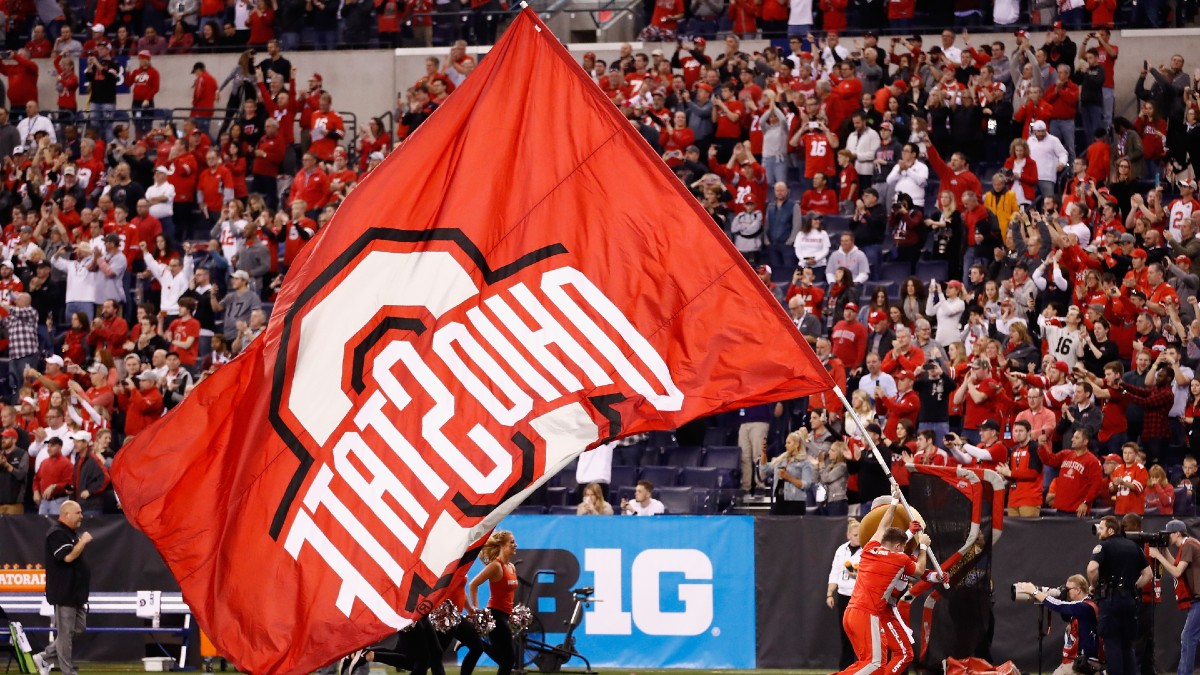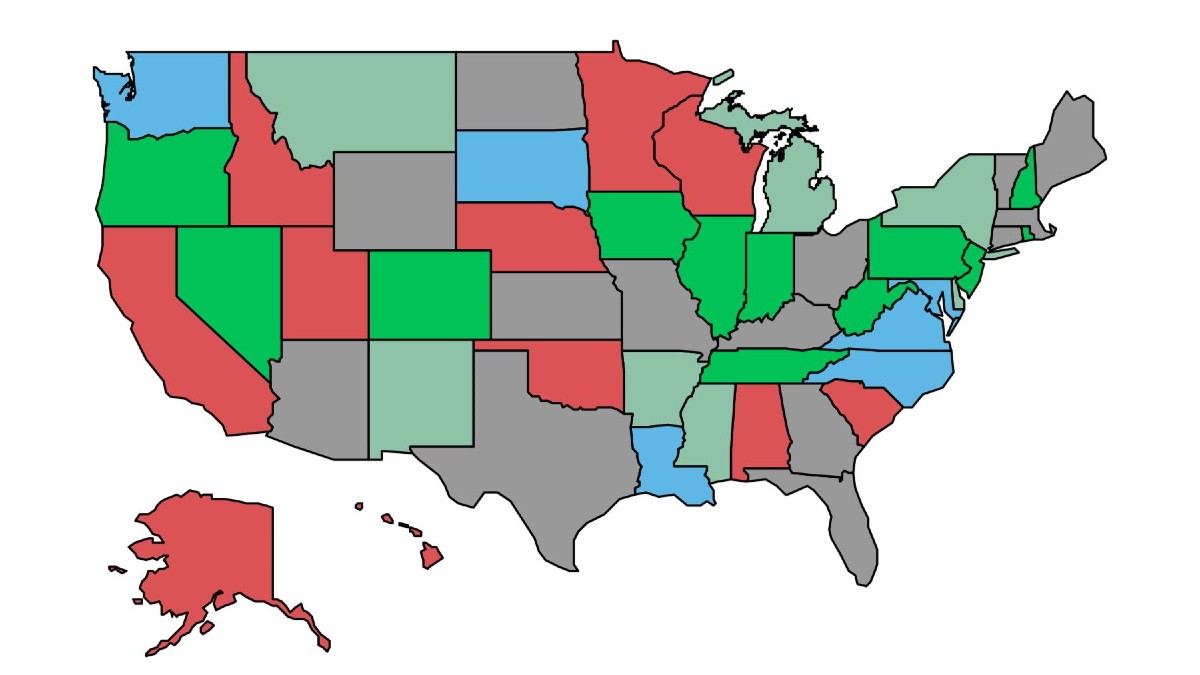
Andy Lyons/Getty Images. Pictured: Ohio State flag
Ohio lawmakers shoehorned sports betting legislation into an unrelated veteran identification bill Thursday night, restarting backers’ hopes they can pass the bill by a self-imposed June 30 deadline.
The sports betting amendment, included by the Senate in a non-controversial bill that expands veteran ID eligibility, circumvents a possible roadblock in the House. Speaker Bob Cupp told local media outlets earlier this week the bill would have to wait until after June for further consideration.
Now, proponents say, the bill can pass before the legislature’s summer recess.
“We think we have an amendment that will finally get gaming accepted and be part of the Ohio revised code that is long overdue,” said Senate Majority Leader Kirk Schuring, one of the bill’s leading advocates, on the Senate floor Thursday. “We think this amendment will get us there.”
Adding the sports betting language into an unrelated bill is a political maneuver lawmakers can use to finally push the bill toward legalization after years of legislative stalemate. Sports betting legalization efforts fell short in 2020, and lawmakers have worked for months with casinos, sports franchises and the hospitality industry on a new bill that can pass in 2021.
Proponents said the latest amendments help alleviate the prior logjam as well as concerns from the most recent incarnation of the standalone bill. The amended veteran ID bill with the updated sports betting provisions passed the Senate Thursday 31-0.
“There’s a lot of key players… whether they’re the casino owners, the racino owners, the sports team owners or the fraternal organizations that all want a part of the action,” said Senate Minority Leader Kenny Yuko ahead of Thursday’s vote. “To get everything done in such a sophisticated way that we did here I think speaks volumes towards the commitment. Promises made, promises kept.”
Key Details: Full-Scale Online Betting
The latest sports betting proposal allows 25 statewide mobile licenses. The state’s 11 casinos and hybrid racetrack “racinos” can have two mobile partners, or “skins,” apiece, but professional sports teams can have only one.
Eligible bettors age 21 and up could wager through any of the online sportsbooks via their mobile devices anywhere within state lines without registering at a casino beforehand.
This move appears to balance sports betting access between the casinos and Ohio sports teams. Under the previous bill, Ohio sports teams were given “preference” to betting licenses and it created a scenario where some casinos could theoretically be shut out from offering retail sportsbooks.
The new language expands retail sportsbook eligibility and would appear to eliminate that concern. Like the prior bill, counties’ retail sports betting access is limited by population, but the new version expands eligibility for the state’s most-populated jurisdictions from three licenses to five.
In Cuyahoga County, which includes Cleveland, the prior bill would have potentially shut out the county’s two casinos from retail sportsbooks. Sen. Sandra William, who represents parts of Cuyahoga County in the legislature, commended the amendments on the Senate floor Thursday.
The state’s professional sports teams lobbied for sports betting license access during hearings held by a select gaming committee earlier this year. Ohio’s eight combined NFL, NBA, NHL, MLB and MLS franchises are likely to apply for licensure, along with the PGA Tour and NASCAR.
If approved, Ohio would join Washington D.C., Arizona, Illinois, Virginia and Maryland among the first jurisdictions to approve sportsbooks within sports venues.
The bill also expands the retail sportsbook license pool from 33 to 40:
- Counties with more than 800,000 residents are eligible for up to five retail books (three counties)
- 400,000 to 800,000 residents can have up to three (three counties)
- Those with at least 100,000 can have one (22 counties)
Additionally, the legislation permits up to 20 self-service kiosk licenses. Certain bars, restaurants, fraternal organizations and other establishments with liquor permits could apply to house up to two terminals.
Sportsbook operators would be taxed 10% of gross gaming revenue, roughly the national median average.
Next Steps for Ohio Sports Betting
The revised bill now goes to the Ohio House of Representatives for concurrence. The bill was not on the House agenda as of Friday morning. The House has until Wednesday to pass the bill before the annual summer recess.
Ohio is among a handful of year-round state legislatures, giving sports betting proponents another shot after the break if the House doesn’t pass (or take up) the bill by month’s end. Still, a best-case scenario sees a 2022 launch; each delay pushes back what would be one of the nation’s largest legal sports betting markets.
Despite widespread backing in the Senate, it remains to be seen if sports betting will receive similar support in the House. Tacking the unrelated sports betting language to a banal voter identification measure the House already passed as a standalone bill could help the newly conjoined legislation clear the full General Assembly.
In the meantime, Senate proponents such as Schuring said supporters had worked closely with the House and remain hopeful of a quick turnaround.
“I think we’re on the threshold of getting something done,” Schuring said. “I think this is an amendment to this bill that hopefully the House cannot refuse. It’s good policy and hopefully, once and for all, we’re have this done and we can see sports gaming in Ohio sometime in 2022.”
